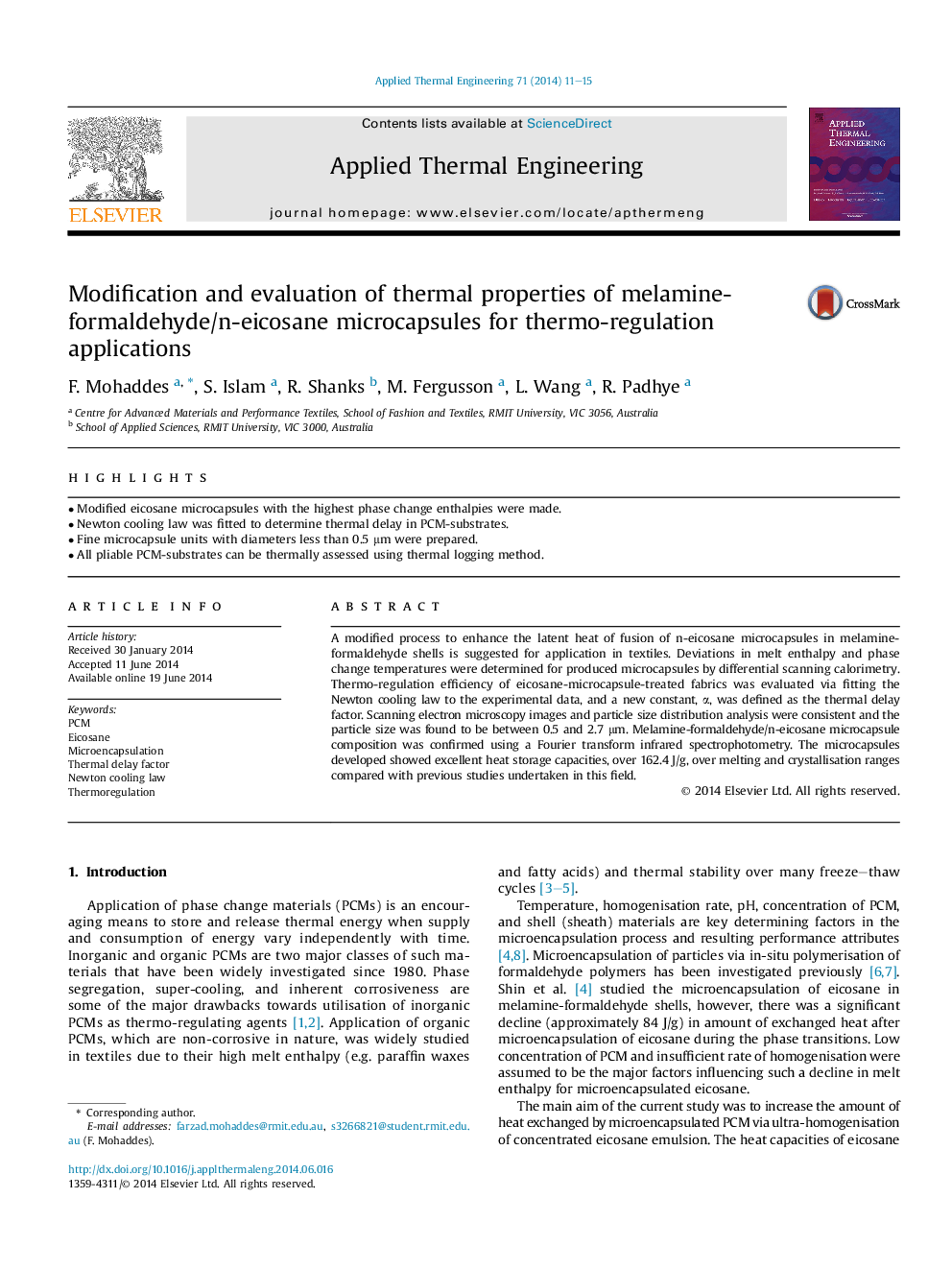| Article ID | Journal | Published Year | Pages | File Type |
|---|---|---|---|---|
| 646077 | Applied Thermal Engineering | 2014 | 5 Pages |
•Modified eicosane microcapsules with the highest phase change enthalpies were made.•Newton cooling law was fitted to determine thermal delay in PCM-substrates.•Fine microcapsule units with diameters less than 0.5 μm were prepared.•All pliable PCM-substrates can be thermally assessed using thermal logging method.
A modified process to enhance the latent heat of fusion of n-eicosane microcapsules in melamine-formaldehyde shells is suggested for application in textiles. Deviations in melt enthalpy and phase change temperatures were determined for produced microcapsules by differential scanning calorimetry. Thermo-regulation efficiency of eicosane-microcapsule-treated fabrics was evaluated via fitting the Newton cooling law to the experimental data, and a new constant, α, was defined as the thermal delay factor. Scanning electron microscopy images and particle size distribution analysis were consistent and the particle size was found to be between 0.5 and 2.7 μm. Melamine-formaldehyde/n-eicosane microcapsule composition was confirmed using a Fourier transform infrared spectrophotometry. The microcapsules developed showed excellent heat storage capacities, over 162.4 J/g, over melting and crystallisation ranges compared with previous studies undertaken in this field.
